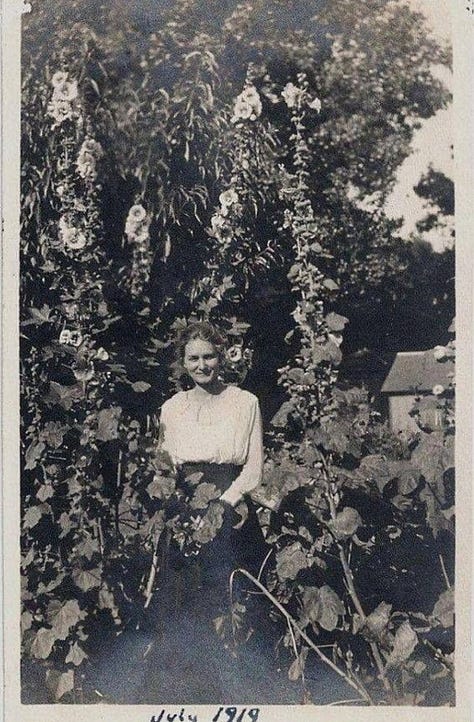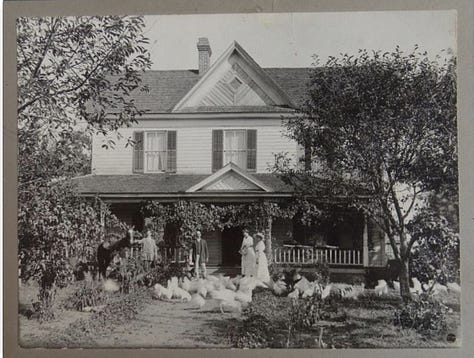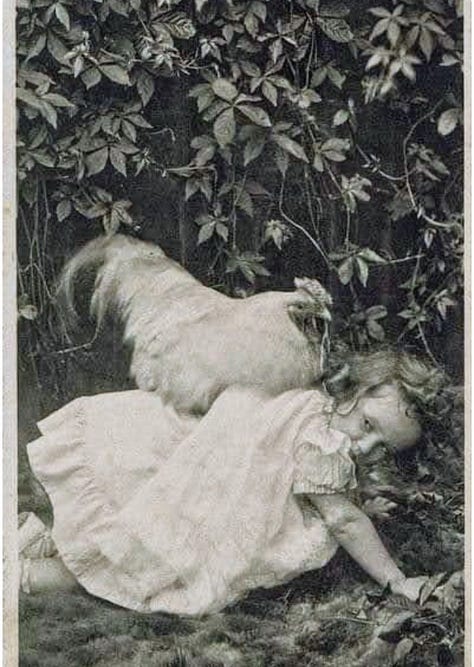


Humans’ connection to farm animals has been something carried out since time immemorial. Our ancestors fed, cared for and housed—sometimes in their personal living quarters—these treasured creatures. It’s pretty remarkable when you really think about it. I started looking through some archival photos of America and was really humbled by the demeanor of the people who used to nurture and caretake farm animals in our country. Farming and animal husbandry is something so spectacularly human, yet many of us, myself included, know it not. I suppose keeping hens and other farm animals were more of a necessity way back when. People tended to care for themselves and their families in a largely self-sufficient manner. In all honesty, I continue to witness this revival brewing and am overjoyed to see how many people who are interested in perhaps returning to this sort of lifestyle—they might just need a little push is all.
Since I was a teen I sort of longed for this type of thing—not really knowing what that would look like or how I would achieve that feeling. But as life’s gone on and I’ve grown, I find myself leaning further and further into the idea of self-sufficiency and what that really means to me. I’d say, being able to collect eggs is a starting place I’m willing to explore. Believe me you, I have not the slightest idea about what it takes to keep hens in a practical sense, but the theory seems fairly simple. My family never had hens running around our backyard growing up, but hearing a rooster crow off somewhere off in the distance on a dirt road wasn’t uncommon in my neck of the woods. In more recently years, I’ve been exposed to my friends’ chickens and have observed from afar the noble work they do to provide eggs to their families and sell the excess.
I’ve pretty much come to terms with the fact that the current system may not be as robust as previously thought, and finding a consistent source for eggs grows harder and harder by the day. In my research, I came across a compelling case to further my consideration to keep chickens. Turns out, humans can reshape a lot of the world for the better if they did. This video goes into some of that information, if you’re interested.
Since this egg shortage seems to be a nationwide ordeal that could take a while to re-stabilize, I’m viewing it as my opportunity to get started and thrust myself into the unknown. There comes a time when life forces you to do what you’ve been putting off by way of silver lining. God works in mysterious ways and the lack of eggs to eat is not lost on the universal laws of cause and effect. Humans are highly adaptable—always have been, always will be. It becomes something of a challenge to figure out what to do when we’re posed with difficult situations. Our DNA activates and we begin pivoting as quickly as possible. I mean, even I am now plotting and learning about coops, feed and the like—and that’s saying something.
With all that said, I think it’s time to come to embrace the scarcity and get in the chicken-keeping game. I do quite like the idea of having animals to care for and in exchange be benefited by something they produce—a perfect balance of the human and animal kingdom, it is. This year we plan on planting a garden plot at our friend’s farm and we have it planned to set some chickens up on their land and raise them together. As I’ve learned, chickens do more than just provide you eggs, they are very skilled at tilling work, all the while providing nutrients to the soil while they do it, so we’ll likely put them to work with that as well! It’ll sure be an interesting life challenge to take on, that’s for certain.
For whatever reason I’ve always sensed that I was somehow built for times such as these. That my generation would seek the ways back to the natural cycles of this beautiful planet—and little by little it seems like we are doing just that one push from the universe at a time.
May you be blessed in this day of our Lord, February 10, 2025.
Until next time,
-Amy

